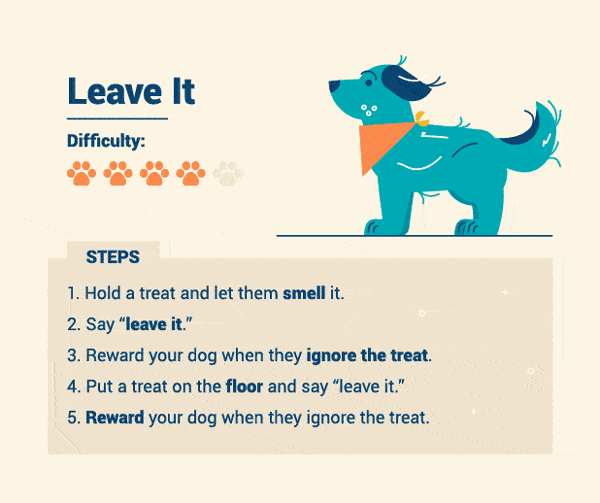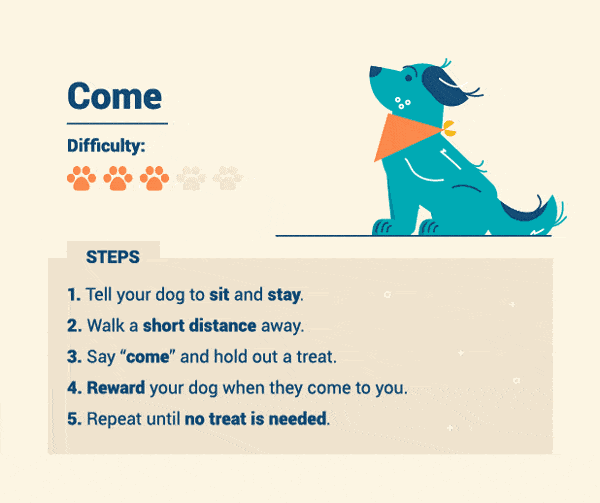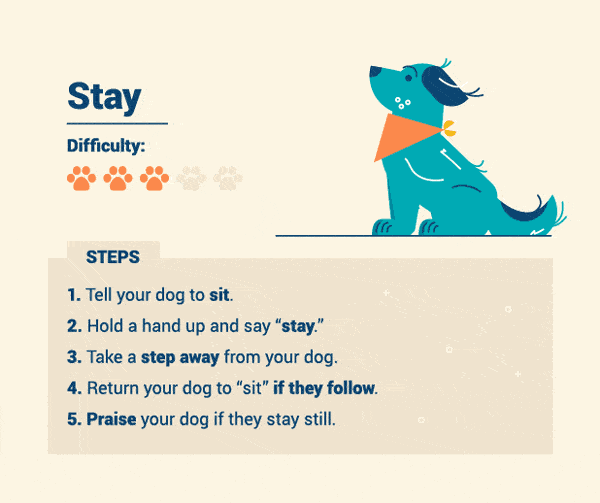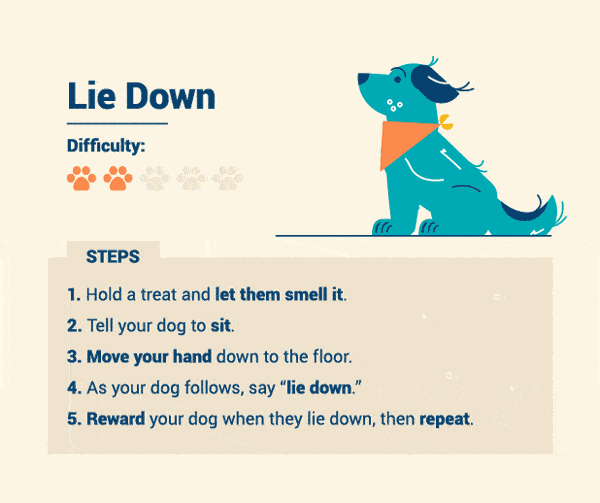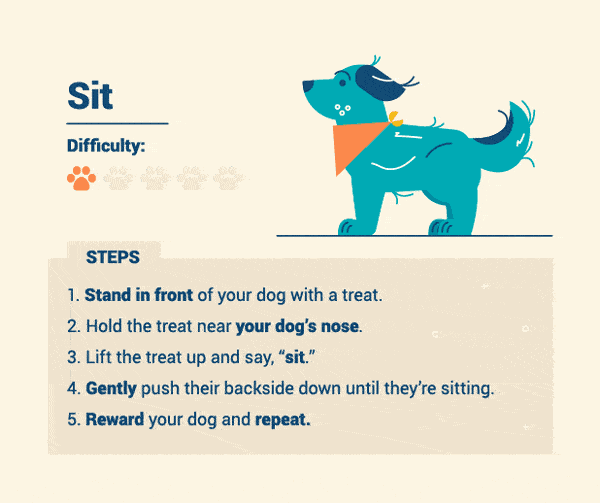Answer: You can start training a puppy at the age of 7 to 8 weeks. This is a good time to teach him the basic commands.
Little puppies don’t know how to behave yet, so they tend to bite, jump on people, pee in the house, bark and so on. It’s the owner’s job to teach his pet good manners. Then he’ll grow up to be a good, unproblematic dog.
📌 Is your puppy hyperactive? Learn effective ways to calm your puppy down.
Contents
Why start training a puppy so early?
Some may think that a 7-8 week old puppy is too young to be trained. In fact, in the past, even trainers recommended not starting training until all vaccinations and boosters have been gone through.
But in the end, trainers often had to deal with puppies that already had behavior problems. That’s why today it’s recommended to start training and socialization early.

At 6 months of age, puppies begin a transitional period in which they’re prone to disobedience and bad behavior. That’s why it’s best to start classes before the age of 6 months.
What if your puppy is older? Start from the beginning, as described below.
What commands should I teach my puppy first?
The first thing you need to teach your puppy is his daily routine. Your new family member should know where and when to eat and go to bed, when to play, and where to go potty. The daily routine will make the puppy feel more relaxed and lay the foundation for further training.
Along with the daily routine, at 7-8 weeks, you can start teaching the puppy basic commands such as:
- sit;
- stand;
- come;
- no;
- good.
These commands will help the puppy throughout his life, so you must learn them. Use these commands to stop unwanted behavior such as barking, jumping, chewing, biting legs and hands. These commands will also help you calm and stop your dog at the right moment, such as when you put a harness on him or wash his paws.
Repeat the same command 2-3 times a day. Your lessons should be short, 5 minutes each, because puppies cannot concentrate for a long period of time.
Of course, you need to make sure that the puppy knows its name. You can also start at this age:
- leash training (until the puppy is vaccinated, then you can leash train him at home);
- socialization (introduce him to new people);
- crate training;
- potty training.
This training will go on for a long time, up to 1 year.
In the video you can find more information about puppy training:
How quickly do puppies learn commands? It all depends on the dog. One week is enough for some, but for others it takes more than a month. The main thing is not to give up!
Puppy training schedule
Once you start training your puppy, you need to keep going and train him regular. You must have a schedule. This is the key to success.
An example of a 4-week training schedule is shown in this chart:
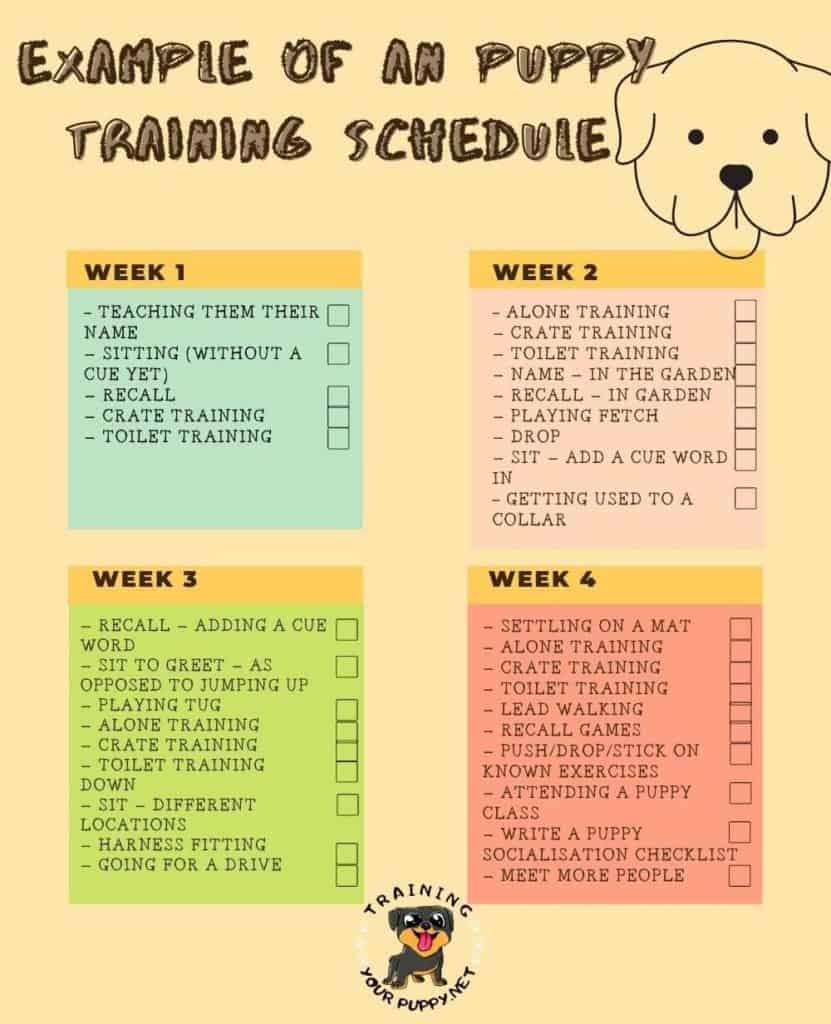
We’ve already talked about what to teach a puppy at 7-8 weeks. So what to do next?
- At 10-12 weeks, you can start teaching your puppy not to bite and some new commands (place, down, home, Fetch and Drop-It ). If you haven’t yet walked your puppy on a leash, or in a harness now is the time to start. Also continue socialization by introducing your puppy to calm dogs.
- At 12 weeks continue to reinforce basic commands, make them more difficult, train your puppy in different areas, or combine multiple commands. If your puppy has already learned simple commands, add new one.
- After 16 weeks, in addition to the above, you should teach your puppy to walk beside you on the leash and not to pull.
To make it easy for you and not to forget when to learn which command, write everything down in a diary.
Related Topic: SHOULD I CRATE TRAIN MY DOG?
Conclusions
The earlier you teach your puppy to be orderly, the better. This will make it easier for you to cope with your puppy in the future.
If you don’t train your puppy, you will most likely end up with a problem dog that is not easy to live with. Sadly, these animals are then taken to shelters and blamed for their misbehavior (even though the owners are to blame).
Those who can not do puppy training at home, for whatever reason, can use the services of specialized schools.
Save this article on Pinterest so you don’t lose it!
Soursec:
https://www.petmd.com/dog/training/when-start-training-puppy
